books read in 2020

Darkness at Noon
by Arthur Koestler
I think that is actually the best of the "soviet union bad" books that I have read. It deals with far more personal themes than Orwell, and it actually seems to give a more accurate depiction of what Soviet authoriarianism actually looked like. It also discusses Marxism well, making the hidden evil of dialectical materialism a central theme. It also argues that individual self-fulfilment should never be sacrificed for some greater "cause," and doesn't resign that to Marxism specifically.

Never Let Me Go
by Kazuo Ishiguro
A very moving book about lost souls and lost opportunity. In a similar way to The Remains of the Day, Ishiguro is taking a particular example of life and drawing broader existential conclusions from it - but this time, he's meandering into science fiction, where he is exploring what it might be like to be a clone used to harvest organs for rich people. Sad, touching, and relatable - Ishiguro is asking the reader to explore the reason we exist at all, particularly in the face of inevitable death.
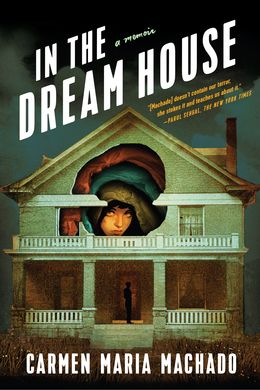
In the Dream House
by Carmen Maria Machado
A harrowing memoir about an abusive relationship. Experimental with the format in a really interesting way, and due to the difficult subject matter, honestly just really difficult to read at certain points. I thought the writer was doing a really intriguing thing with the format to the text - she breaks it up into different sections with different themes. At one point, the book even does a choose your own adventure narrative that really hammers home the point. Fantastic book - difficult to read, but absolutely necessary.
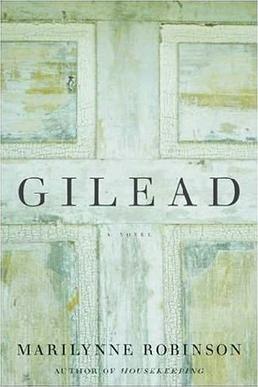
Gilead
by Marilynne Robinson
An exquisite novel about the last thoughts of a dying preacher in 1950s Iowa, this book is just a joy to read. It talks a lot about grace, forgiveness, love, and what it means to live a good life. I feel that Robinsson is trying all throughout the book to sound profound, and often that can get tiring in other books, but she succeeds so often that it actually really works. Definitely learned a lot from this one, and many of the quotes are probably going to stick with me for a while.

The Remains of the Day
by Kazuo Ishiguro
A quietly devastating novel about an English butler in the 1950s, reminiscing about his life and his regrets. Another one of the best books I've read this year. It deals with loss, regret, and aging, all in a masterful way. It also has one of the angstiest romances I think I've ever read in my whole life. I found myself screaming at the lead character to just tell the person he loves how he feels! It also deals primarily with the lingering thought that work in our life might be meaningless, and what that means.

How To Do Nothing
by Jenny Odell
Similar to Four Arguments for the Elimination of Television, except this one is obviously modern and focuses particularly on Facebook and Twitter. A really good read, centers around the story "Bartleby, the Scrivener" by Melville, which has always been among my favorite short stories. "I would prefer not to," from the story, is kind of the running theme, except talking about online habit formation and news feed scrolling. Log off, learn about nature, stop using social medai sites that are robbing you of a thinking space and community.

The Cost of Discipleship
by Dietrich Bonhoeffer
Here's my first explicity religious book of the year. I've always really admired Bonhoeffer, and I remember reading this a couple of years ago and not fully getting into it, so I thought I would give it another shot. It's a really fantastic overview of the Sermon on the Mount, mostly, and how best to follow it. Bonhoeffer claims that Christians often wiggle their way out of actually doing what Jesus says, which he says is a form of "cheap grace" rather than the "costly grace" of discipleship. Enlightening and spiritual read.

This is How You Lose the Time War
by Amal el-Mohtar and Max Gladstone
A fun, romantic science fiction, time-travelling book. I thought that the world-building could have been fleshed out a little bit more, but the central romance between the two characters was sweet and compelling. Kind of a classic enemies-to-lovers, but with time travel, and very flowery and well-written prose.
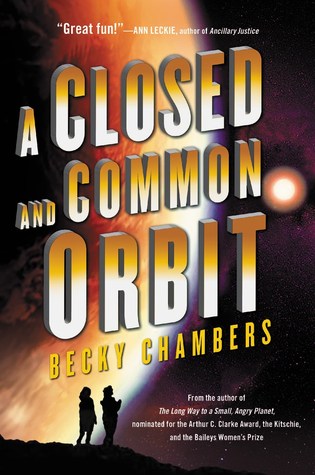
A Closed and Common Orbit
by Becky Chambers
An absolutely incredible science fiction novel, a clear improvement over A Long Way to a Small, Angry Planet, and just a phenomenal meditation on what AI might theoretically look like. Humane, warm, optimistic, and real. This is a real winner in just about every concieveable way. One of my favorite books I've read this year.

A Long Way to a Small, Angry Planet
by Becky Chambers
A really fun space opera! Big Firely vibes. A lot of the book is a bit episodic, and it is hard to grasp onto any long-running themes, but it is just an uneniably fun read. I really enjoyed all of the characters and I became invested in their development. I felt a lot of warm and fuzzy feelings about family and frienship.

I'm Thinking of Ending Things
by Iain Reid
It's hard to talk about this book without spoiling anything, but suffice it to say, this was a book that kept me on edge. It also had a nice little meditation about - well, depression, anxiety, loneliness. It's a well-written horror book that goes below the surface and digs into actual human issues. Some parts of it were a little bit silly - I remember giggling at moments. But overall, I enjoyed it, and would probably read it again.

Brave New World
by Aldous Huxley
An interesting dystopia - it's weird that I hadn't read it until now. It's so well-known and well-tread, that it was honestly a little difficult to get through, I since I knew where it was going. A well-written critique of lots of modernist cliches, from both the right-wing and left-wing. There is an arguable anti-civ perspective in there was well. Huxley is an interesting guy. I can't decide if I prefer this or 1984 more, but honestly, dystopias are hardly my thing.
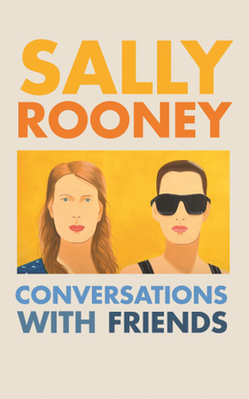
Conversations With Friends
by Sally Rooney
I read Normal People last year, and I loved it so much that I knew I had to pick up another Sally Rooney book. I loved this one as well, although the ambiguity in this one frustrated me more than it did in Normal People. A great book about the tensions of being young and in love, and sharing those anxieties with your best friends. I particularly liked how Rooney managed to make every character in the book equally sympathetic and unlikable at the same time.

The Complete Idiot's Guide to Classical Music
by Robert Sherman and Phillip Sheldon
I learned so much about Classical Music! I have always been a big rock and pop fan, and I knew that I needed to round out my musical knowledge by getting into anything pre-1900. This helped so much! Now I've been listening to Chopin and Debussy non-stop, and I discovered some amazing 21st century classical music. Caroline Shaw in particular is so amazing. I also finally listened to Lizst and Brahams, and similar to literature, I think I'm a Romantic geek.

The Age of Surveillance Capitalism
by Shoshana Zuboff
Really disturbing book about the way that Google and Facebook work to soak up our data for the sake of profit. The most memorable thing about this is that she reframes the information in new way - it is often said that we are the product for Google and Facebook, but that is not exactly right. We are the raw resource. She compares Google and Facebook to primitive accumulation, basically. I disagree with some of her assertions, and she should have mentioned free software, but the book is vital nonetheless.
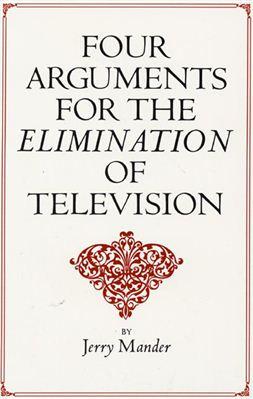
Four Arguments for the Elimination of Television
by Jerry Mander
Kind of a wild ride, but almost totally convincing that television is ultimately harmful. Much of the criticism focuses on television news, which I was already super skeptical of, but at this point, I think I am convinced that there is no reedeming the format. "There is no such thing as news. There is only media." was one of the most memorable quotes from the book. I think the other reasonable conclusion you can come to is that anything relaint on advertising for revenue is inherently untrustworthy and should be wholesale discarded.
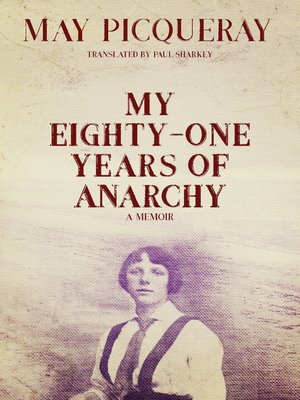
My Eighty-One Years of Anarchy
by May Picqueray
An absolutely fascinating autobiography, from a woman who is often overlooked in anarchist history. May Picqueary met Emma Goldman, Alexander Berkman, Leon Trotsky, Nestor Makhno, and Voline! She partcipated in the Russian Revolution, the Spanish Civil War, and the revolutions of 1968 in France. Reading this book is like a journey through the 20th century, as told by one sympathetic woman. She may exaggerate her own role in these affairs on occassion, but it is no matter, since she is such a sympathetic and funny character.

Against His-story! Against Leviathan!
by Fredy Perlman
Interesting reframing of history from an anti-civilization lens. It certainly made me rethink a lot of the underlying assumptions I have about "progress," even as somebody who always thought that the traditional framing was nonsensical. One of the most striking parts was when he mentioned that America, Africa, and Austrailia are not the names of places any free people have ever lived. The book is available online from the anarchist library.

Having Little, Being Much
by Lorraine Perlman
Beautiful biography of Fredy Perlman by his wife. I learned a lot about the circles that Fredy Perlman moved through, including much of the 1960s radical American mileau. Fredy seems like an amazing figure, and this book certainly made me want to read more and watch television less. It also made me want to play more music! The book is available online from the anarchist library.

The Death of Ivan Ilyich
by Leo Tolstoy
I've always been a big fan of Leo Tolstoy, and it has only continued here. This was essentially an existentialist look at death, and there was no doubt a lot of autobiographical elements to this story as many of the concerns bedeviling the title character also confronted Tolstoy in his later years. If you want to think hard about confronting death, this is a great place to start. The book is available online from Wikisource.

Empire of Illusion
by Chris Hedges
Chris Hedges has always been a bit of a stumbling block for me, since he is so cynical. This was always the book of his that I wanted to read most, though, and I don't regret doing so. I really like how he compared politics to "kayfabe" in professional wrestling, and bemoans the lack of general literacy. Some of his critiques seemed a little bit overblown, and the section on sex work could have used a sex worker perspective.

Hate Inc.
by Matt Taibbi
If you wanted to be even more cynical about the news media than you probably already are, than this is the book for you! Taibbi argues that the media is essentially construed in order to make us hate each other. He utilizes Noam Chomsky's "propaganda model," but twists it to show the way that the media is manufacturing discontent rather than consent. He agrees with many of Chomsky's basic premises, and the book includes an interview with Chomsky.